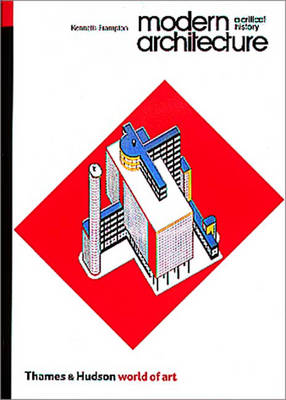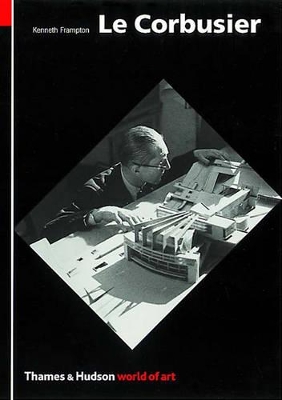World of Art
3 total works
This highly acclaimed survey of modern architecture and its origins has become a classic since it first appeared in 1980, and has helped to shape architectural practice and discourse worldwide. For this extensively revised and updated fifth edition, Kenneth Frampton has added a new section that explores in detail the modernist tradition in architecture across the globe in the late twentieth and early twenty-first centuries. He examines the varied ways in which architects are not only responding to the geographical, climatic, material and cultural contexts of their buildings, but also pursuing distinct lines of approach that emphasize topography, morphology, sustainability, materiality habitat and civic form. It remains an essential book for all students of architecture and architectural history.
This acclaimed survey of 20th-century architecture and its origins has become a classic since it first appeared in 1980. Now revised, enlarged and expanded, Kenneth Frampton brings the story up to date and adds an entirely new concluding chapter that focuses on four countries where individual talent and enlightened patronage have combined to produce a comprehensive and convincing architectural culture: Finland, France, Spain and Japan. The bibliography has also been reviewed and extended, making this volume more indispensable than ever. 362 illus.
Le Corbusier is probably the most famous architect of the 20th century. The richness and variety of his work and his passionately expressed philosophy of architecture have had a gigantic impact on the urban fabric and the way we live.
Weaving through his long and prolific life are certain recurrent themes - his perennial drive towards new types of dwelling, from the early white villas to the Unite d'Habitation at Marseilles; his evolving concepts of urban form, including the Plan Voisin of 1925 with its cruciform towers imposed on the city of Paris and his work at Chandigarh in India; and his belief in a new technocratic order.
The distinguished critic and historian Kenneth Frampton re-examines all the facets of his artistic and philosophical world-view in light of recent thinking, and presents us with a Le Corbusier for the 21st century.
Weaving through his long and prolific life are certain recurrent themes - his perennial drive towards new types of dwelling, from the early white villas to the Unite d'Habitation at Marseilles; his evolving concepts of urban form, including the Plan Voisin of 1925 with its cruciform towers imposed on the city of Paris and his work at Chandigarh in India; and his belief in a new technocratic order.
The distinguished critic and historian Kenneth Frampton re-examines all the facets of his artistic and philosophical world-view in light of recent thinking, and presents us with a Le Corbusier for the 21st century.


